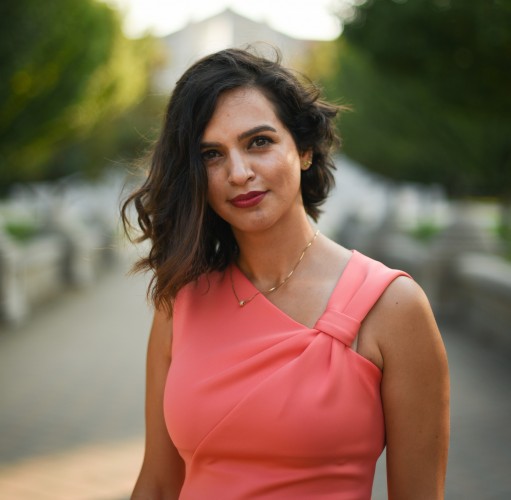Welcome Maryam Ghadiri!
 The Center for Community and
Citizen Science is excited to welcome Maryam Ghadiri as the new
postdoctoral fellow on the LEARN CitSci project. Maryam was
recently the director of education and research at the Environmental Learning Center
(ELC), a non-profit organization in Vero Beach, Florida. She
worked with educators and ecologists to design, implement and
evaluate different environmental education and outreach
programs.
The Center for Community and
Citizen Science is excited to welcome Maryam Ghadiri as the new
postdoctoral fellow on the LEARN CitSci project. Maryam was
recently the director of education and research at the Environmental Learning Center
(ELC), a non-profit organization in Vero Beach, Florida. She
worked with educators and ecologists to design, implement and
evaluate different environmental education and outreach
programs.
Maryam holds a Bachelor’s in Environmental Science and a Master’s in Conservation Biology, both from the University of Tehran, and finished her PhD in Ecology & Free-Choice STEM Learning at the Center for Global Soundscapes at Purdue University.
During her PhD, Maryam conducted field research on the impact of highways on the soundscape diversity of a nature sanctuary in Wisconsin. Additionally, she developed hands-on multi-sensory curriculum about soundscape ecology called Your Ecosystem Listening Labs (YELLs)– specifically designed for middle school youth and high school students with visual impairment. Her qualitative research centered around understanding the contribution of participation in week-long soundscape science camps on participants’ conceptual understanding and development of situational interest.
Maryam was an Emerging Leaders in Science & Society Fellow with the American Association for the Advancement of Science (AAAS), and received the “30 Under 30” Environmental Educator Award from the North American Association for Environmental Education (NAAEE) for promoting environmental education to minorities. Additionally, she has received multiple grants and produced multiple journal publications and conference presentations in areas of conservation biology, environmental education and learning research.
Besides her background in science, Maryam is a visual artist, with many of her paintings and photographs inspired by nature. She works hard to integrate nature, science and art in educational programming.
While at the center, Maryam is looking forward to using the skills she has developed in ecology and informal STEM education to conduct research, engage youth in outdoor activities, help individuals increase their interaction with nature and promote environmental stewardship through citizen science. She says, “It is exciting to work on an interdisciplinary topic in international scale as it creates a great opportunity for me to develop collaborative effort, understand the complexity of learning in informal settings and study the impact of informal education on knowledge, identity and agency of youth.”








